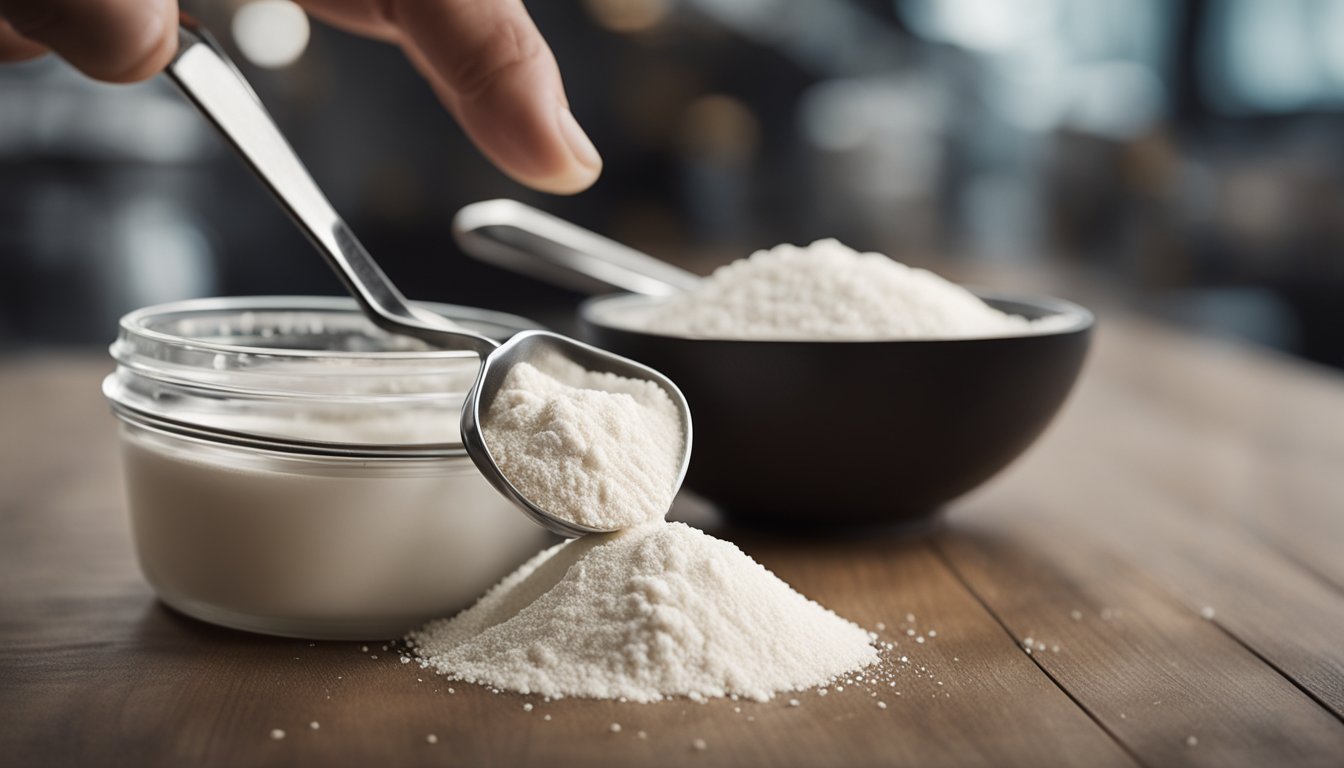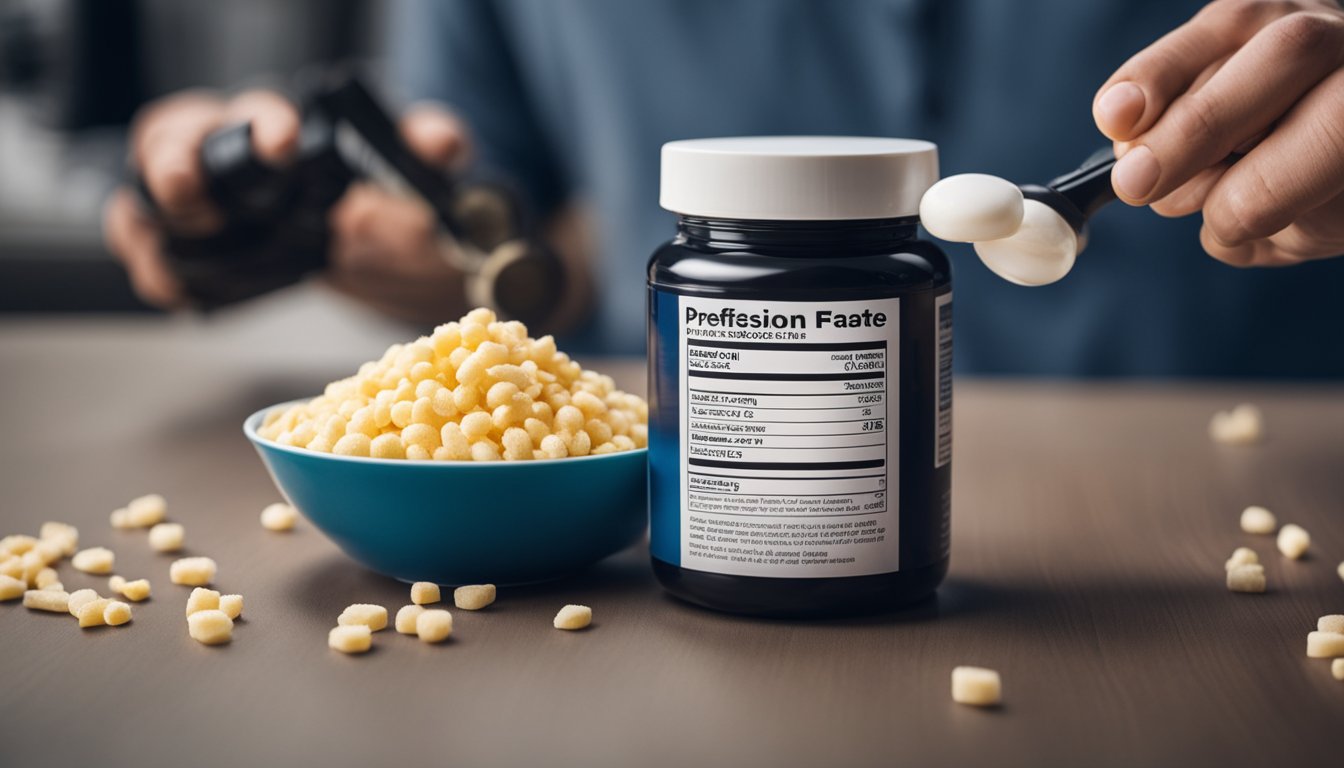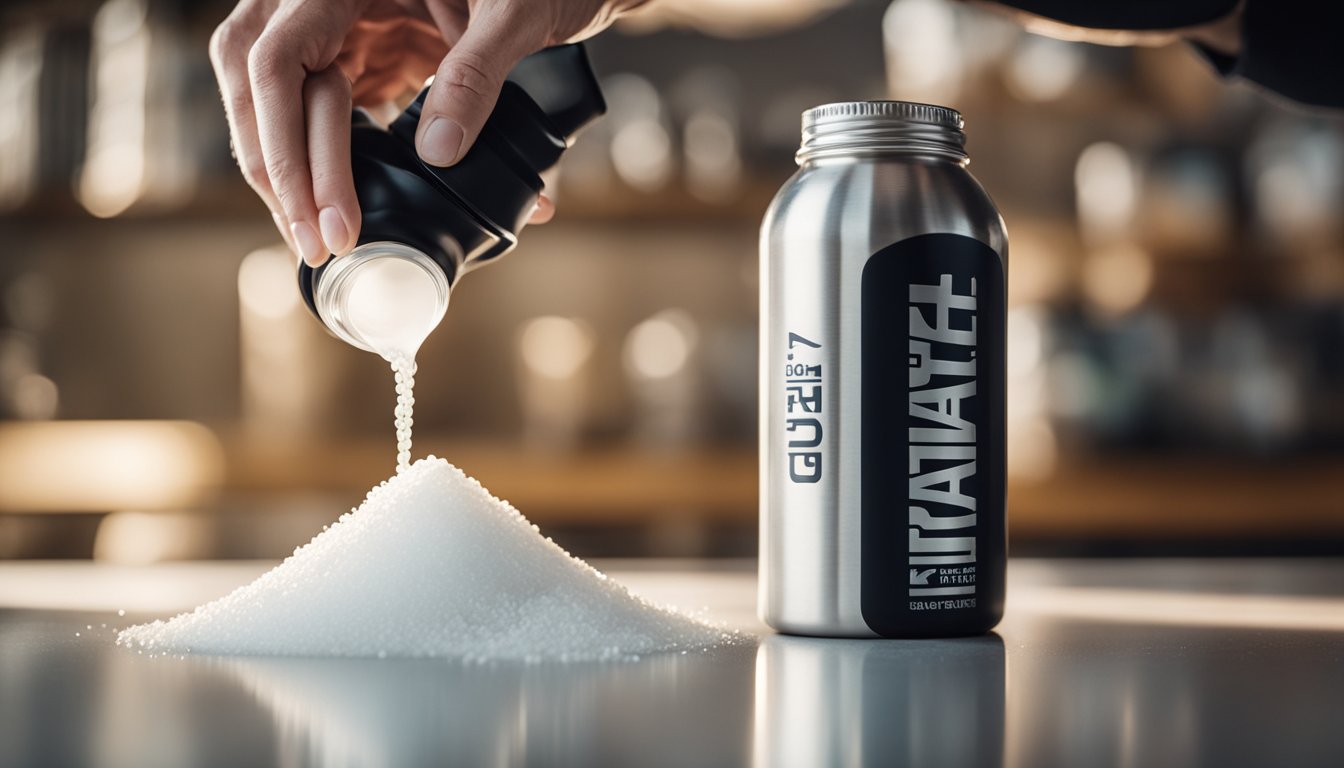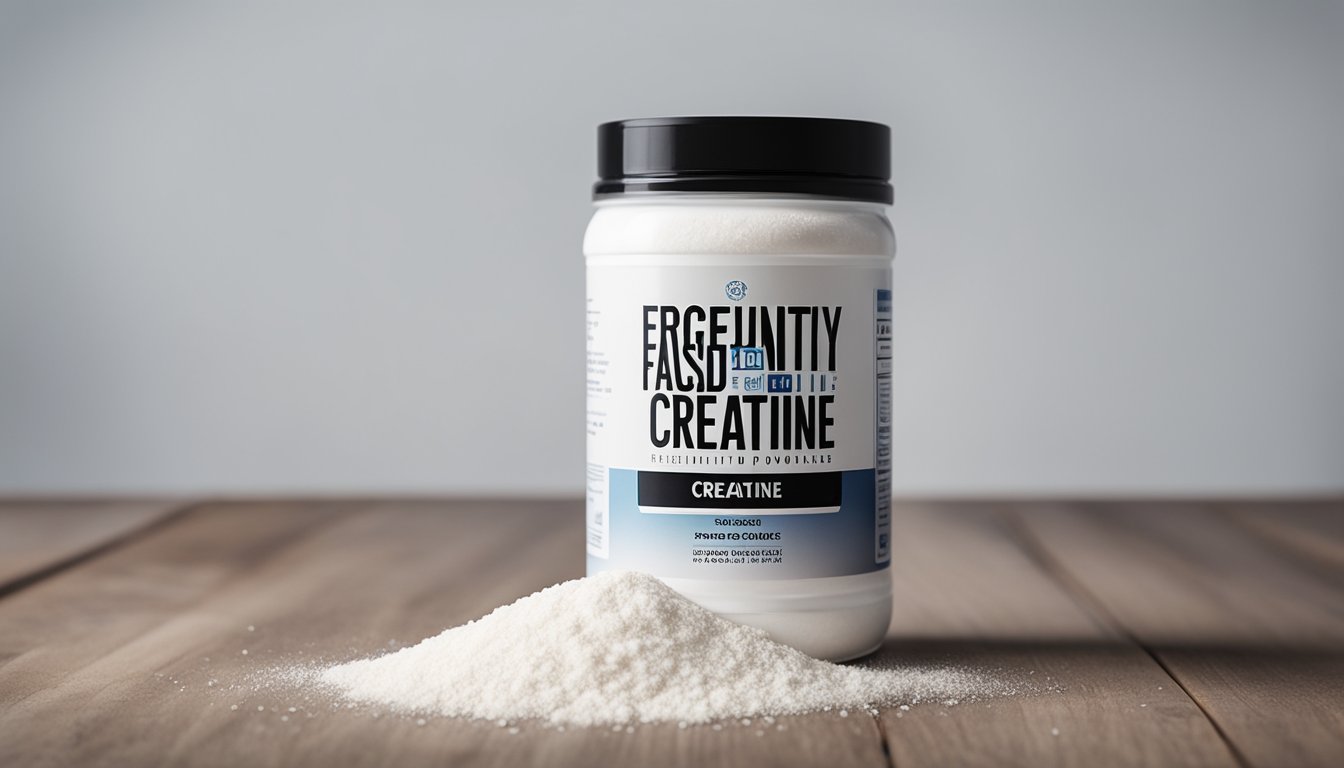Can You Dryscoop Creatine? Yes, but should you
What is Dry Scooping?
- Dry scooping (creatine or any other health supplement) involves ingesting the powder directly without mixing it with water or another liquid.
- While dry scooping may offer some benefits, such as convenience and faster absorption, it also poses several health risks, including choking and breathing problems.
Dry scooping creatine (and other supplements) is a trend that has been gaining popularity in the fitness community, likely driven by social media influence from TikTok under the hashtag #preworkout. In a study from 2021 on dangers of dry scooping, we find that any method of consumption that is improper or non-conventional gets more likes.
As an example, proper use of supplements pre-workout receive circa 2 million likes, whilst the Dry Scoop method amasses more than 8.2 million likes. It confirms why Jackass the series was a hit!

Understanding Creatine

Creatine is a naturally occurring substance that is found in muscle cells. It is an amino acid that plays a vital role in the production of adenosine triphosphate (ATP), which is the primary energy source for muscle contractions. Creatine is also available as a supplement, which is used by athletes and bodybuilders to improve their performance and increase muscle mass.
The Role of Creatine in the Body
Creatine is stored in the muscles as creatine phosphate, which can be quickly converted into ATP during intense physical activity. This allows the muscles to contract more efficiently and for longer periods of time, which can lead to improved athletic performance. Creatine has also been shown to increase muscle growth and improve body composition.
Different Forms of Creatine
There are several different forms of creatine available, but creatine monohydrate is the most commonly used and studied form. It is a white, odorless powder that can be mixed with water or juice and consumed as a supplement. Other forms of creatine, such as creatine ethyl ester and creatine hydrochloride, have been developed to improve absorption and reduce potential side effects, but their effectiveness is still under debate.
Overall, creatine is a safe and effective supplement for improving athletic performance and increasing muscle mass. However, it is important to follow the recommended dosage and more importantly the normal method of consumption (no dry scooping).
Health Risks and Side Effects

The argument for dry scooping is to provide faster absorption of creatine into the body, resulting in improved performance and muscle gains. However, experts warn against this practice, as it can lead to several health risks:
- Choking
- Can also cause stomach cramps
- Dehydration
- And kidney damage if not consumed with enough water.
Choking and Aspiration
Dry scooping creatine can cause choking and aspiration, which is when the powder enters the lungs instead of the stomach. This can lead to coughing, shortness of breath, and even pneumonia in severe cases. It is important to mix creatine with water or another liquid before consuming it to avoid these risks.
Gastrointestinal Issues
Dry scooping creatine can also cause gastrointestinal issues such as stomach cramps, nausea, and diarrhea. This is because the powder can be difficult to digest and may irritate the lining of the stomach. Mixing creatine with a liquid can help prevent these issues and make it easier for the body to absorb.
Long-Term Health Concerns
While there is limited research on the long-term effects of creatine supplementation, some studies have suggested that it may increase the risk of dehydration and tooth decay. Additionally, creatine may have a negative impact on kidney function in people with pre-existing kidney conditions. It is important to talk to a healthcare professional before starting any new supplement regimen.
In conclusion, while creatine can be an effective supplement for improving athletic performance, dry scooping it can lead to several health risks and side effects. It is important to mix creatine with a liquid before consuming it and to talk to a healthcare professional before starting any new supplement regimen.
Proper Usage and Alternatives

Recommended Creatine Supplementation
When it comes to creatine supplementation, it is essential to follow the recommended usage guidelines to maximize its benefits. It is recommended to take 3-5 grams of creatine monohydrate per day, preferably after a workout. However, some people may prefer to take their creatine before a workout. It is essential to ensure that the creatine is fully dissolved in a liquid before consumption.
Mixing with Liquids
Mixing creatine with liquids is the most effective way to ensure full absorption. It is recommended to mix creatine with at least 8 ounces of water, juice, or a protein shake. Mixing it with milk or yogurt is not recommended as it may reduce the effectiveness of the creatine. It is important to note that creatine may not dissolve as easily in some liquids, such as cold water or juice. In this case, it may be helpful to mix the creatine with warm water or a warm liquid to help it dissolve more easily.
Dry scooping creatine, or taking it without mixing it with a liquid, is not recommended. While it may seem convenient, it can be dangerous and ineffective. Creatine is a highly concentrated supplement that can cause irritation and damage to the throat and esophagus if taken dry. Additionally, dry scooping creatine may not provide the same absorption and effectiveness as mixing it with a liquid. It is always best to take creatine as directed and mix it with a liquid for optimal absorption and effectiveness.
In conclusion, it is important to follow the recommended usage guidelines for creatine supplementation to maximize its benefits. Mixing creatine with liquids is the most effective way to ensure full absorption, and it is important to ensure that the creatine is fully dissolved before consumption. Dry scooping creatine is not recommended and can be dangerous and ineffective.
Frequently Asked Questions

Is it safe to consume creatine without mixing it with liquid?
Dry scooping creatine is not recommended as it can cause potential health risks. When creatine is not mixed with liquid, it can get stuck in the throat, causing choking or difficulty in breathing. Moreover, dry scooping can cause stomach cramps, vomiting, or heart palpitations, especially when combined with pre-workout powders that contain caffeine. Therefore, it is always safe to consume creatine by mixing it with water or juice.
What are the potential benefits of dry scooping creatine?
There are no scientific studies that suggest dry scooping creatine provides any additional benefits over mixing it with liquid. However, some athletes and bodybuilders prefer dry scooping as it provides an exact dosage of the supplement, and they can avoid the taste of the supplement mixed with liquid.
How does dry scooping creatine compare to taking it with water or juice?
Dry scooping creatine can cause potential health risks, whereas taking it with water or juice is safe and effective. When creatine is mixed with liquid, it dissolves quickly, and the body can absorb it efficiently. Additionally, consuming creatine with water or juice can help prevent dehydration and improve overall hydration.
Are there any specific times when creatine should be taken to maximize its effectiveness?
Creatine can be taken at any time of the day. However, taking creatine immediately after a workout can help replenish the creatine stores in the muscles, leading to faster recovery and improved muscle growth. Additionally, taking creatine with a meal that contains carbohydrates can increase its absorption rate.
Can consuming creatine immediately after brushing teeth affect its absorption or efficacy?
There is no scientific evidence that suggests consuming creatine immediately after brushing teeth affects its absorption or efficacy. However, it is recommended to wait for at least 30 minutes after brushing teeth before consuming creatine to prevent any interference with the toothpaste’s ingredients.
What substances should be avoided when taking creatine to ensure its effectiveness?
To ensure the effectiveness of creatine, it is recommended to avoid consuming caffeine, alcohol, and acidic substances, such as citrus juices, as they can interfere with creatine absorption. Additionally, it is recommended to drink plenty of water to prevent dehydration and improve overall hydration.








